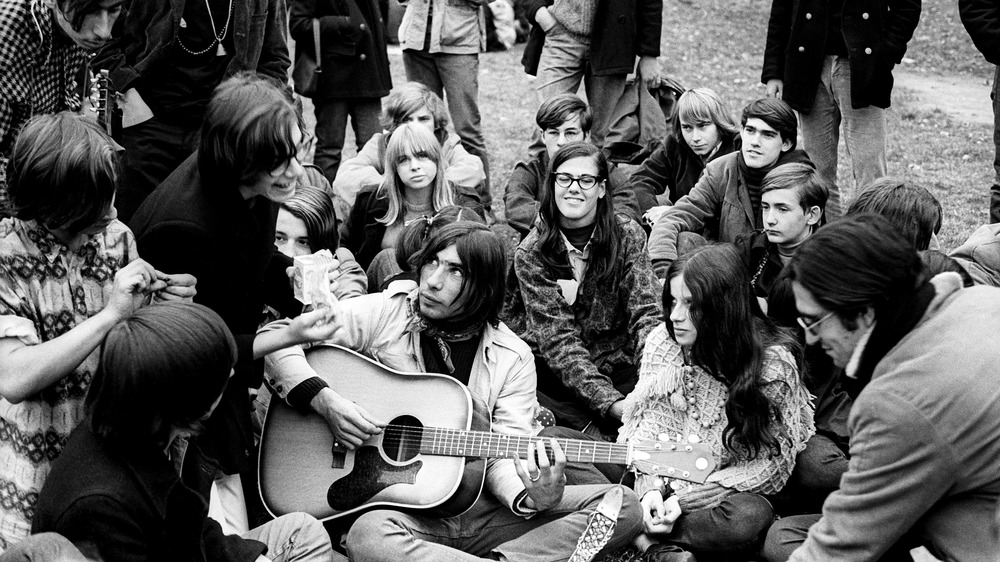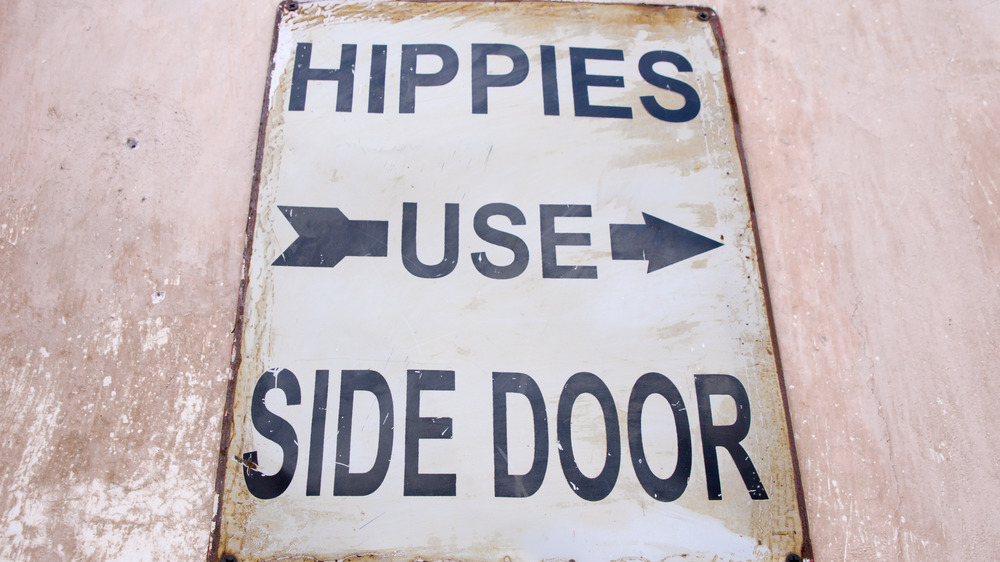The Indiana Town That Had An "Anti-Hippie" Law
When hippies appeared in the 1960s with their long hair, antiwar sentiments, rejection of commercial and capitalist society, love of marijuana and LSD, and countercultural beliefs, lots of people were suspicious and scared. This is a common cycle seen when younger generations come of age and often seek to reject the mores and values of their older predecessors.
However, one Indiana county took the extreme step of creating what had come to be known as the "anti-hippie ordinance," which existed for nearly 50 years right up until its recent repeal. In 1971, Indiana's LaGrange County passed an ordinance that regulated "large gatherings of more than 500 people that lasted more than 12 hours long," as reported by The News Sun. LaGrange County Commissioner Dennis Kratz ascertained that the regulation was an attempt to prevent a music festival like 1969's Woodstock, considered one of the seminal events of the hippie period, from taking place in LaGrange County.
Other "anti-hippie ordinances" are much more serious
Commissioner Kratz is reportedly the person who coined the term "anti-hippie ordinance" and noted that the recent repeal of the law is part of a clean-up effort meant to organize the county's laws and make them easily searchable via a classification system. During this process, commissioners found many "old ordinances and resolutions that simply haven't withstood the test of time," mostly related to old road signs and traffic laws.
The idea of making laws with the express purpose of foiling hippie music festivals seems pretty funny now, but there's actually a complicated and disturbing legacy surrounding what might also be called "anti-hippie ordinances." According to the San Francisco Chronicle, then-United States president Richard Nixon "began the 'War on Drugs' in 1969 as a weapon to use against antiwar hippies and African Americans."
In 1994, Nixon aide John Ehrlichman confessed that the administration had purposefully worked at "getting the public to associate the hippies with marijuana and Blacks with heroin, and then criminalizing both heavily" in order to "disrupt those communities." The effects of criminalizing drug use in order to destabilize and harm minority communities continue to this day.

